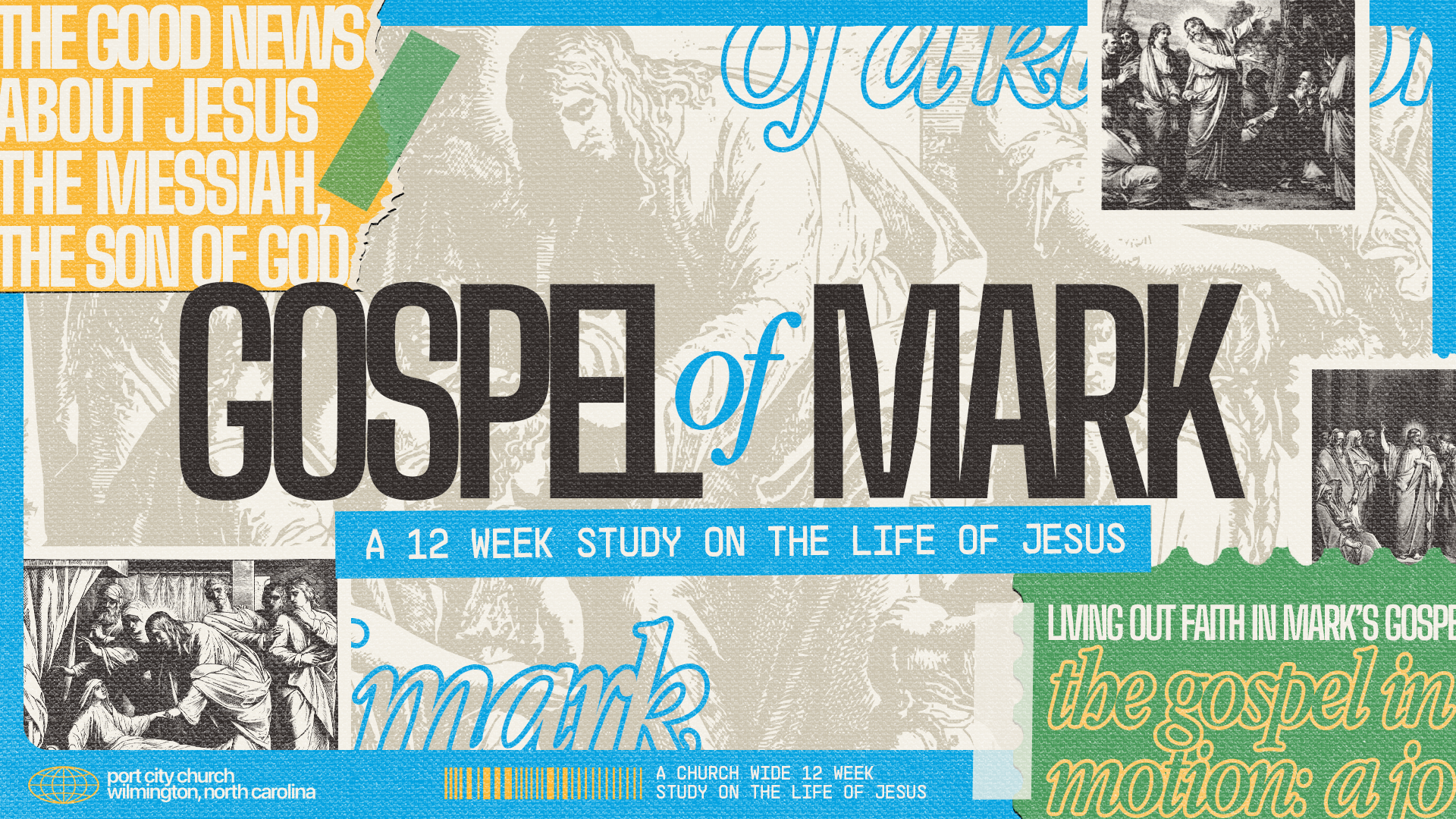
The Poor Widow
In today’s passage, we get to see two different scenes in the Jerusalem temple that perfectly capture Jesus' upside-down kingdom values
The Greatest Commandment
In today’s passage, something unusual happens. After all the traps and trick questions, a teacher of the law approaches Jesus with what seems like a genuine question: "Of all the commandments, which is the most important?"
Limited Box
In today’s passage, Jesus faces yet another challenge from religious leaders – this time from a group called the Sadducees.
A Loaded Question
In today’s passage, we find Jesus facing a tricky situation that many of us can relate to – being asked a loaded question designed to get him in trouble no matter how he answers.
The Cornerstone
Jesus' audience would have immediately recognized this as a story about themselves. In the Old Testament, Israel was often described as God's vineyard. The religious leaders were supposed to be faithful caretakers, but throughout history, they had rejected and sometimes killed the prophets God sent. Now, Jesus was revealing that he was the Son, and he knew exactly what they planned to do to him.
What Authority?
"Who do you think you are?" It's amazing how five simple words can carry so much weight. We've all been there – maybe from a teenager challenging a parent, an employee questioning a boss's decision, or someone disputing a referee's call. That's essentially what's happening in today’s passage, though the religious leaders dress it up in more sophisticated language: "By what authority are you doing these things?" The day after Jesus turned their temple commerce upside down, they were not looking for his credentials – they were looking for a way to discredit him.
Flipping Tables
At first glance, today’s passage feels like Jesus is having a really bad day. He's hangry and curses a fig tree for not having fruit (even though Mark tells us it wasn't the season for figs), then storms into the temple and starts flipping tables. Without context, it might seem like we're watching a temper tantrum. But Mark's masterful storytelling is actually giving us something far more profound – a powerful enacted parable about genuine faith versus empty religion.
A Borrowed Donkey
Today we witness the most contradictory grand entrance: a king arrives to claim his throne, but instead of a golden chariot, he's chosen a borrowed donkey. Instead of royal heralds, he's surrounded by ordinary peasants waving tree branches. Instead of a red carpet, people are throwing their dusty cloaks on the ground. This is the scene that unfolds as Jesus enters Jerusalem, and every detail pulses with purpose and irony.
Shouting All The More
"Jesus, Son of David, have mercy on me!" The desperate shout rings out over the disapproving murmurs of the crowd. Bartimaeus, a blind beggar, is creating what the proper religious folk would call a "scene" – and he doesn't care one bit. While others try to silence him, he only shouts louder, refusing to miss his moment with Jesus. In a world that often told the disabled to stay quiet and invisible, Bartimaeus's holy disruption stands as a powerful testament to raw, persistent faith.
Seating Arrangements
"Teacher, we want you to do for us whatever we ask." These words from James and John could easily be the subtitle of a "How Not to Approach Jesus" guidebook. The scene unfolds like a masterclass in misunderstanding, with two of Jesus's closest disciples making what might be the most tone-deaf request imaginable. Jesus has just finished explaining, for the third time, that he's heading toward suffering and death in Jerusalem. Their response? "Hey, about those seating arrangements in your kingdom..."
Rich Young Ruler
In a single scene, Mark contrasts two radically different approaches to Jesus – children being brought for blessing and a wealthy young man seeking eternal life. The stark difference in their receptions reveals profound truths about entering God's kingdom.
Broken Relationships
In Mark 10, when religious leaders approached Jesus about divorce, they came armed with legal arguments and theological technicalities. Yet Jesus' response revealed something far deeper – God's heart breaks over broken relationships. By pointing back to creation, Jesus reminds us that God's original design wasn't just about rules, but about deep, lasting unity that reflects His own nature.
The Greatest
Walking along the dusty road to Capernaum, Jesus' disciples engaged in what they thought was a private debate – who among them was the greatest? When Jesus questioned them about their conversation, their embarrassed silence spoke volumes.
Help My Unbelief
Have you ever felt completely powerless? In a gripping scene from Mark's Gospel, we meet a desperate father whose situation might feel surprisingly familiar. His son has been suffering from devastating seizures, and despite the disciples' best efforts, they couldn't help. The father's cry, "I believe; help my unbelief!" resonates across centuries because it captures how most of us actually experience faith – not as unwavering certainty, but as a mixture of trust and doubt.
Who Do You Say I Am?
Identity and commitment—these two themes collide powerfully in today’s pivotal moment of Mark's Gospel. Jesus begins with a seemingly simple question: "Who do people say I am?" But like many of Jesus' questions, it's just the setup for something much deeper.
Gradual Growth
Ever noticed how some things in life happen gradually? Like learning to ride a bike—you don't just hop on and race through traffic. First, there are training wheels, wobbly attempts, and probably a few scraped knees. In today’s story, Jesus performs what you might call a "two-stage" miracle, and it's packed with meaning for anyone who's ever felt like their spiritual growth isn't happening overnight.
Missing The Point
Have you ever missed the point entirely? The disciples find themselves in a boat, worried about forgetting bread, while Jesus tries to teach them about something far more significant. Their minds are stuck on physical sustenance while Jesus warns them about the subtle, pervasive influence of dangerous thinking.
A Hungry Crowd
Sometimes we need reminders of God's faithfulness, even when we've seen Him work before. In today’s passage, Jesus again faces a hungry crowd, and remarkably, the disciples seem to have forgotten the previous feeding miracle. Their response echoes our own tendency to forget past provisions when facing new challenges.


